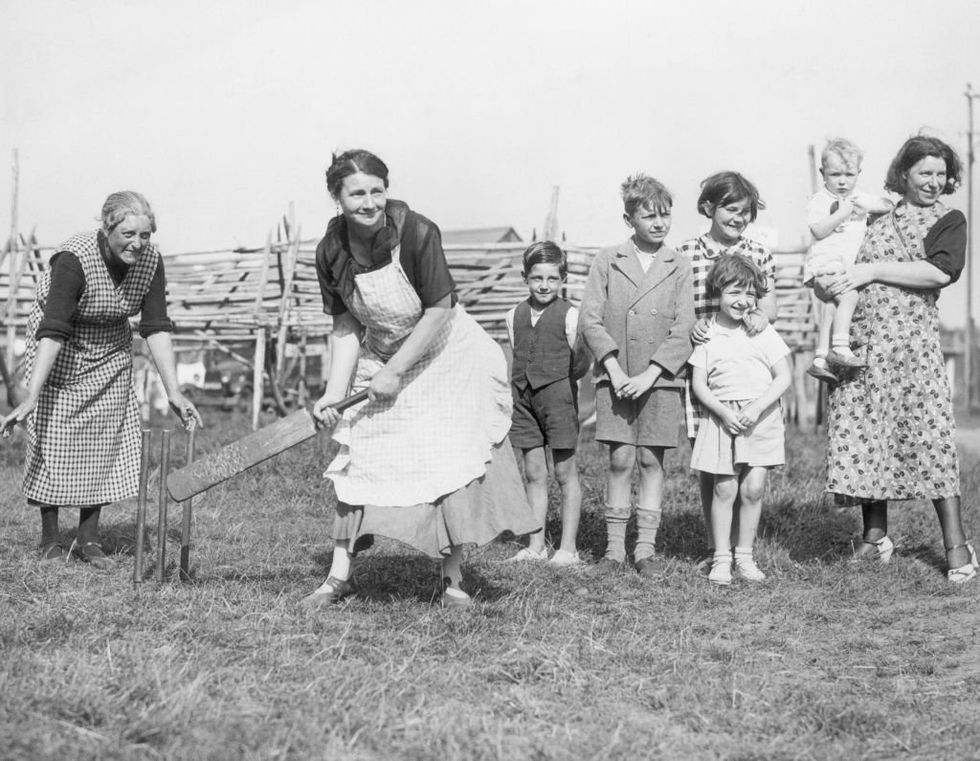Want to improve the birth rate? Stop being so harsh on mothers.

In their quest to make motherhood great again, conservatives have set a very high bar for those wanting to make a go of it. Enter the all-or-nothing mother.
She must breastfeed baby, and if she’s unable to produce milk for whatever reason, she’s just not trying hard enough. She can’t leave baby in a crib, or sleep-train baby, or leave baby alone with his father or extended family, because Mama must be with baby at all times, lest she give baby a lifetime of attachment-related trauma.
Rather than purity-spiraling and leading the birth rate into further decline, conservatives could simply tell women the truth: that they can relax, because there are a thousand different ways to be a good mother.
She must feed baby exclusively organic food, but she can’t have a job to help her afford it — that might require the ultimate dereliction of maternal duty: day care.
Not that preschool, full-day kindergarten, or half-day kindergarten is much better. Come to think of it, homeschooling is really the only path for any mother who cares about her children. And so on and so forth.
Domestic girlbosses
In theory, such all-or-nothing motherhood applies the tightly wound, busy-busy-busy culture of high-status, white-collar professions to the domestic sphere — where the stakes are the lives and souls of one’s own children, far greater than corporate presentations and spreadsheets ever could be!
And yet, in practice, this vision of motherhood makes it seem intolerable — not to mention impossible — to the only audience that matters: impressionable young women and girls. Far from convincing them of the value of motherhood, making motherhood out to be an all-or-nothing ordeal makes young women wonder if the feminists really were right, if being a mother is incompatible with being a full person.
I say this as a member of that demographic: I’m 23 years old and single, and while I am quite conservative and have always wanted children, I’m surrounded primarily by moderate to liberal, professional-class women my age who don’t know what they want.
Child-hating hags?
My peers, for the most part, aren’t the child-hating, travel-obsessed hags they’re all too often made out to be by conservative media — they happen to actually like children, sometimes in spite of themselves.
While some of their apprehension toward motherhood is absolutely driven by a culture that eggs on adult narcissism and extended adolescence, much of it is driven by the opposite extreme: the expectation that not only will they have to give up their friends, their hobbies, and their careers when they have children, but they will have to become completely dependent on their husbands for their financial and social life and will spend every moment hovering over their children with no self left besides “mother.”
When young women feel like motherhood is all or nothing, that either you stay “child-free” and keep yourself or become a mother and lose yourself, is it any wonder they’re choosing to keep themselves in greater numbers?
More time to spare
While this failure to create tolerable motherhood norms is nonpartisan — it’s telling, for instance, that conservative mothering and hippie mothering have basically become one and the same — conservatives have a special responsibility here.
After all, unlike liberals, conservatives are interested in getting more women to have more children. Instead of tilting at the windmill of middle-class maternal neglect, conservatives should acknowledge the reality that working mothers today spend more time with their children than stay-at-home mothers did a generation ago, and yet children today are more anxious and less self-sufficient than ever before.
Conservatives would do well to keep in mind that women in traditional cultures have the proverbial village to help them raise their children, something American women, even those with traditional values, usually lack.
As a result, while many of the demands conservatives make of mothers ostensibly resemble traditional culture, they deviate from traditional culture in the one way that counts: Rather than enmeshing mothers in the fabric of society, over-intensive conservative mothering norms often alienate mothers from everyone else.
Love’s legacy
Why drive mothers crazy — and deter would-be mothers from having children — all for the sake of what is essentially a neurotic, individualistic ideology that doesn’t even seem to improve children’s outcomes — and might actually make them worse?
Rather than purity-spiraling and leading the birth rate into further decline, conservatives could simply tell women the truth: that they can relax, because there are a thousand different ways to be a good mother. And that, when we think of our mothers as adults, we don’t remember the lifestyle choices they made — day care or not, organic or not, home birth or not — but rather the love they gave us — the deep, unconditional love that only a mother can give.










